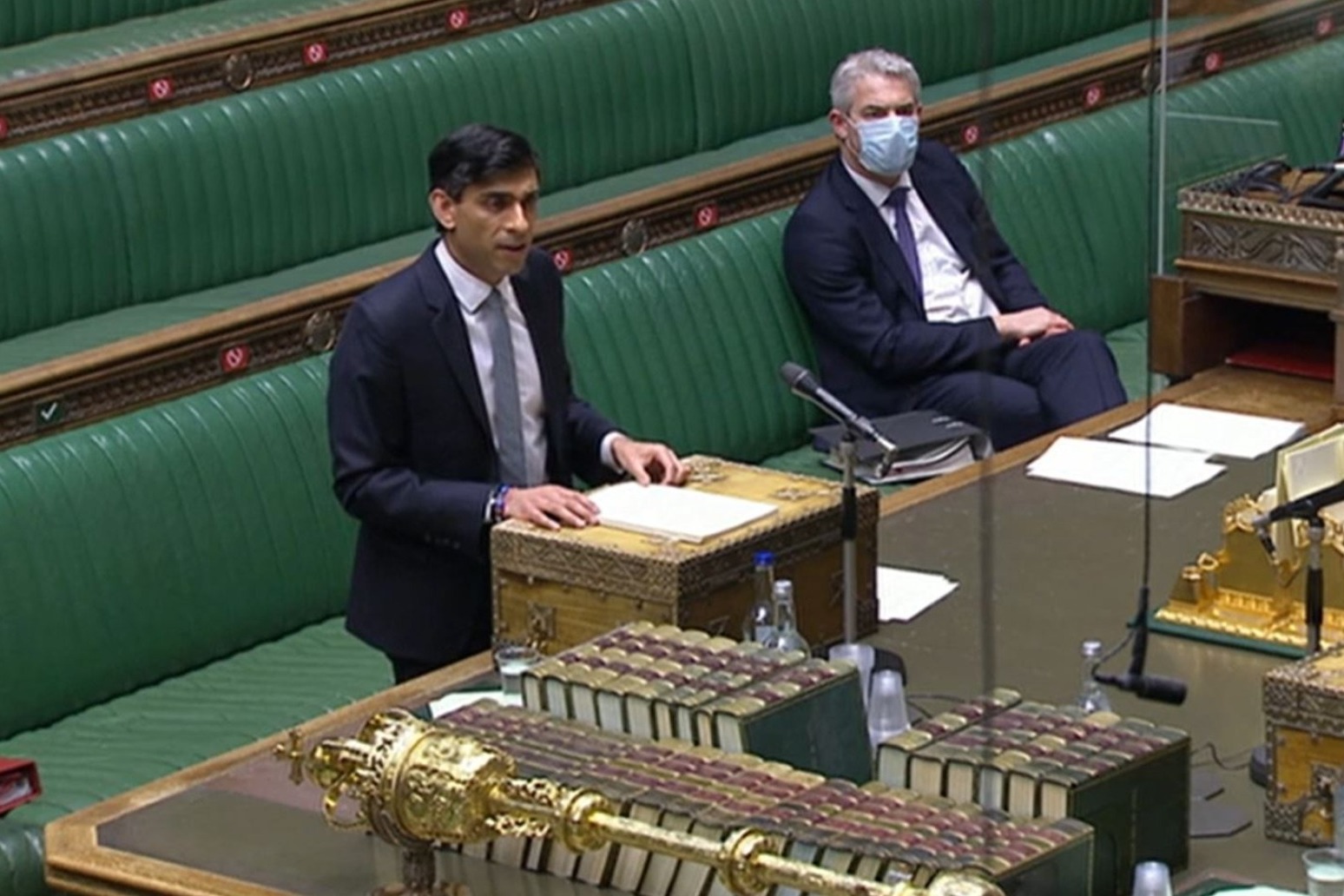
Corporation tax will increase to 25% from 2023
Corporation tax will rise in the UK to levels not seen since 2011, Chancellor Rishi Sunak has announced.
He said the tax rate on profits made by businesses will increase from 19% to 25%, but will not be implemented until 2023.
According to the Budget Red Book, it will see an extra £11.9 billion raised in 2023/24, £16.25 billion in 2024/25 and £17.2 billion in 2025/26.
Mr Sunak said: “The Government is providing businesses with over £100 billion of support to get through this pandemic, so it is fair and necessary to ask them to contribute to our recovery.
“Even after this change the UK will still have the lowest corporation tax rate in the G7 – lower than the United States, Canada, Italy, Japan, Germany and France.”
The rise puts the UK above the EU average of 21.7% but remains below the US corporation tax level of 27%, which President Joe Biden has said he is looking to increase.
France’s rate is 26.5%, Germany has a rate at 30%, Canada at 26.5%, Japan at 30.62% and Italy at 24%, according to data from KPMG.
According to the OECD data on corporation tax, where national tax and local levies are included, the rates are – France 34.4%; Italy 27.8%; Germany 29.9%; Japan 29.7%; Canada 26.6% and the US 25.9%.
Mr Sunak reverses a decade of cuts to the tax, leading to the current level of 19% since 2017. Former chancellor George Osborne had previously said he wanted the tax to go as low as 15%.
Corporation tax receipts in 2018-19 were £55.1 billion, and £63.2 billion in 2019-20.
The Chancellor added: “I’m protecting small businesses with profits of £50,000 or less by creating a Small Profits Rate, maintained at the current rate of 19%. This means around 70% of companies – 1.4 million businesses – will be completely unaffected.”
A £50,000 taper is also introduced so only businesses making profits above £250,000 or more will be taxed at the new 25% rate – affecting only around 10% of all companies.
He added: “For the next two years, I’m also making the tax treatment of losses significantly more generous by allowing businesses to carry back losses for three years providing a significant cash flow benefit.”
The bank’s surcharge will also be reviewed because the overall tax rate would be too high, he added.
Published: by Radio NewsHub